Obsessive-Compulsive Disorder (OCD)
What is Obsessive-Compulsive Disorder (OCD)?
Obsessive-Compulsive Disorder (OCD) is a chronic mental health condition characterized by uncontrollable, recurring thoughts (obsessions) and behaviors (compulsions) that a person feels the urge to repeat over and over. These obsessions and compulsions can interfere significantly with daily activities and cause distress.

Symptoms of OCD
- Obsessions: These are unwanted, intrusive thoughts, images, or urges that trigger intensely distressing feelings. Common obsessions include:
Fear of contamination or dirt
Unwanted forbidden or taboo thoughts involving sex, religion, or harm
Aggressive thoughts towards others or self
Having things symmetrical or in a perfect order
- Compulsions: These are behaviors an individual feels compelled to perform in response to an obsessive thought, aimed at reducing anxiety or preventing something bad from happening. Common compulsions include:
Excessive cleaning or handwashing
Ordering and arranging things in a particular, precise way
Repeatedly checking on things, such as checking to see if the door is locked or the oven is off
Treatment for OCD
Cognitive-Behavioral Therapy (CBT)
Specifically, a type of CBT called Exposure and Response Prevention (ERP) is highly effective for treating OCD.
Medications
Selective serotonin reuptake inhibitors (SSRIs) are commonly prescribed to help reduce OCD symptoms.
Other Therapies
In severe cases, other treatments such as deep brain stimulation (DBS) or transcranial magnetic stimulation (TMS) may be considered.
You've taken the first step now let us help you find the right support
Recognizing Clinical Depression
– Lasting sadness
– Loss of interest in most activities
– Constant fatigue or low energy
– Negative thoughts
– Feelings of worthlessness, hopelessness, or guilt
– Difficulty concentrating on daily tasks
– Changes in eating and sleeping patterns
– Restlessness or irritability
– Physical aches and pains without a clear cause
– Thoughts of death or suicide
Signs Your Child
Needs to See a Child psychiatrist
Recognizing when your child may need to see a psychiatrist is crucial for addressing their emotional and mental well-being. Here are some signs that may indicate it’s time to consider seeking help from a Child Psychologist in Calicut:
- Your child is dealing with a significant change or a stressful situation, like bullying, a health issue, divorce parents, or a move to a new city or school.
- Your child's mental, emotional, and behavioral problems seem to be getting worse over time instead of better.
- Your child or family has experienced trauma, such as a death, an accident, or abuse.
- Your child encounters challenges when it comes to forming and maintaining friendships.
- You notice big notable shifts in your child's temperament and behavior.
- They often have trouble with their behavior in school.
- Your child is worrying to much for trivial things
- Your child's grades are dropping.
Common Conditions Addressed at Our Center
Clinical child psychology is a field dedicated to researching, evaluating, and addressing a broad spectrum of interconnected biological, psychological, and social challenges encountered by children.
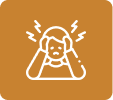
ANXIETY
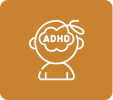
ADHD

DEPRESSION

AUTISM

LEARNING PROBLEMS

BEHAVIOURAL PROBLEMS

ADJUSTMENT PROBLEMS

STRESS
At Mind Weavers, our Child Psychologists are well-versed in the latest evidencebased interventions, providing personalized counseling to address the unique needs of each child.
Skills and Procedures Utilized
Clinical child psychology encompasses a wide range of procedures and skills addressing your child’s needs, including:
- Assessment (e.g., psychological, intellectual, cognitive, and behavioral evaluation).
- Intervention (e.g., psychotherapy and applied behavior analysis).
- Prevention program development (e.g., school readiness,bullying, addictions, obesity).
- Consultation with transdisciplinary team
- Evidence based Practices

Services Offered By Our Center
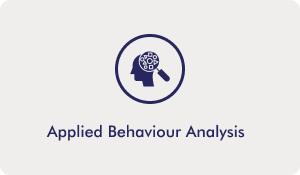
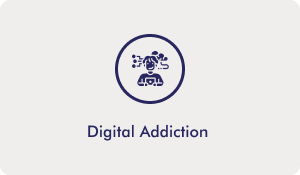
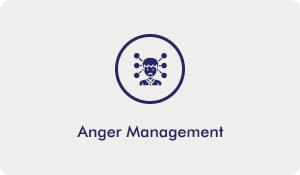
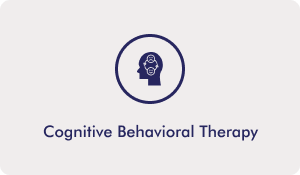
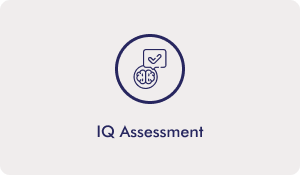
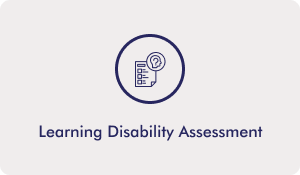
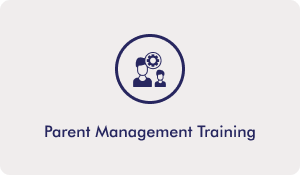

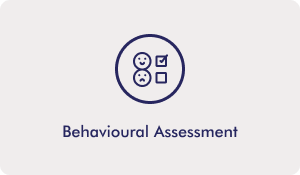
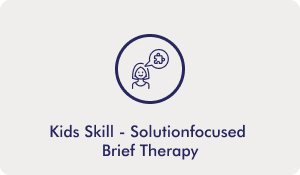
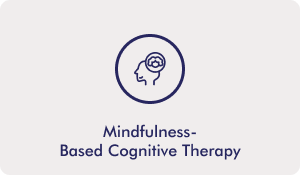
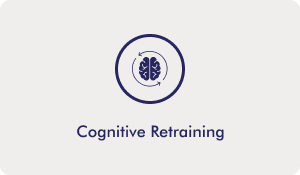
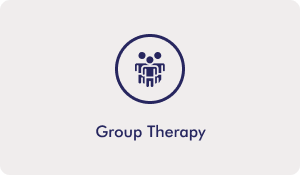

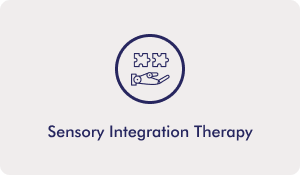
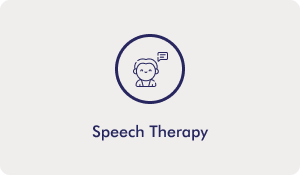
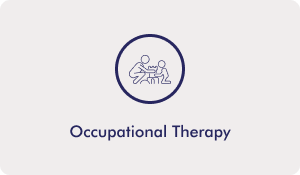
These services are administered by experienced and compassionate clinical psychologists and therapists that ensure your child receives the care and support they need to lead healthier and more fulfilling lives.
Frequently asked questions
OCD is believed to be caused by a combination of genetic, neurological, behavioral, cognitive, and environmental factors. Family history, brain abnormalities, and significant life stressors can contribute to the development of OCD.
OCD is diagnosed by a mental health professional based on a clinical evaluation, which includes discussing symptoms, medical history, and sometimes standardized assessment tools or questionnaires.
Supporting someone with OCD involves:
– Encouraging them to seek professional help
– Being patient and understanding
– Learning about the disorder to better understand their experiences
– Offering emotional support and avoiding criticism of their compulsive behaviors
– Helping them adhere to their treatment plan
It’s normal to have occasional intrusive thoughts. However, for someone with OCD, these thoughts are persistent, unwanted, and cause significant anxiety and distress, leading to compulsive behaviors.
Yes, OCD can affect children and adolescents. Symptoms may differ slightly from adults, and early diagnosis and treatment are crucial for managing the disorder effectively in younger individuals.
Managing OCD involves:
– Following the treatment plan prescribed by a mental health professional
– Practicing stress management and relaxation techniques
– Staying active and maintaining a healthy lifestyle
– Avoiding alcohol and drugs, which can exacerbate symptoms
– Joining a support group for people with OCD
If you think you might have OCD, it’s important to seek help from a mental health professional. They can provide a proper diagnosis and recommend an appropriate treatment plan.
If you think you might be depressed:
– Reach out to a mental health professional for help
– Talk to trusted friends or family members about your feelings
– Engage in activities you enjoy, even if it’s difficult
– Take care of your physical health through exercise, nutrition, and sleep
– Avoid alcohol and drugs, which can worsen depression
Help for OCD can be found through:
– Mental health professionals, such as psychologists, psychiatrists, and counselors
– Mental health clinics or organizations
– Support groups and online resources
Mind Weavers for Adult Psychology -
Why We're Different?
✨Experience:
Mind Weavers stands out in the field of adult psychology for several reasons. Our team of licensed professionals brings a wealth of experience in dealing with adult psychological issues. We understand that adulthood is a time of significant transition and are committed to helping you navigate this period with empathy and expertise.
✨Understanding Issues from The Root:
We support a comprehensive strategy for mental health. Hence, it means we don’t just focus on your symptoms; we explore the root causes of your challenges. Therefore, by addressing these underlying issues, we aim to provide long-lasting solutions that improve your overall well-being.
✨Supportive Environment:
Another reason to choose Mind Weavers is our commitment to creating a supportive environment. We know that discussing mental health can be difficult, which is why we prioritize creating a safe, non-judgmental space. Our goal is to make you feel comfortable and heard, ensuring that you can openly discuss your concerns and challenges.
✨Flexible Treatment Plans:
Additionally, we offer flexible treatment options tailored to fit your lifestyle. So, whether you prefer in-person sessions or online consultations, we make it easy to access the help you need. Our flexible scheduling and various therapy modalities ensure that you can find the right fit for your needs.
Therefore, take the first step towards a healthier adulthood by choosing Mind Weavers. Your mental well-being deserves the best care, and we’re here to provide it.
Choosing Mind Weavers for
Your Child's Well-Being
At Mind Weavers, our aim is to have a happy, playful, and confident child.
We prioritize your child’s well-being and offer top-quality mental health services to support their growth and happiness. Our dedicated professionals including child psychologists, therapists, and counelors help children overcome challenges, develop crucial life skills, and thrive emotionally.
At Mind Weavers, you’re choosing more than specialized services; you’re selecting a caring and nurturing environment that fosters resilience, self-assurance, and a positive outlook.


